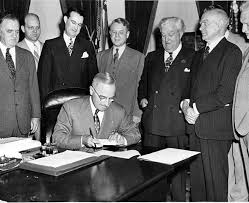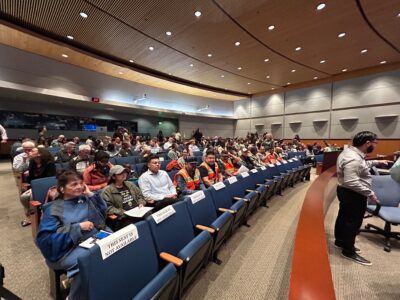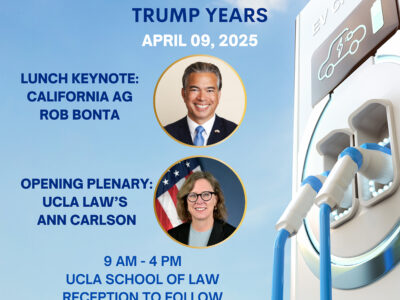Regulation
Don’t Panic About the Supreme Court’s Ruling on Universal Injunctions
The Court left open a variety of workarounds. At least for the now.
In a case involving birthright citizenship, Trump v. CASA, the Court limited the power of judges to issue universal injunctions that protect everyone subject to an illegal government policy. President Trump hailed this outcome as a great victory, and it does provide more maneuvering room for him and future presidents. But the Court’s reasoning does not implicate most judicial rulings about the legality of regulations. The Court also left open some important questions that will be furiously litigated in the lower courts or the Supreme Court itself.
CONTINUE READINGThe Emperor’s New Endangerment Theory (Wrap-Up)
Trump’s EPA says carbon emissions from U.S. power plants are too insignificant to regulate.
U.S. power plants emit 1.5 billion tons of carbon dioxide a year, a little less than the entire country of Russia. The Trump Administration is proposing to end all regulation of carbon emissions by power plants, on the theory that these emissions should be considered insignificant. They have some complicated legal arguments , but the arguments break down the more closely you look at them.
CONTINUE READINGCan Public Ownership Fix Our Electricity Woes? It’s Complicated
New UCLA report “Power Struggle: California’s Electric Utility Ownership Dilemma” by Sylvie Ashford, Mohit Chhabra, and Ruthie Lazenby
This post is co-authored by Sylvie Ashford and Mohit Chhabra. California’s investor-owned utilities (IOUs) are under intense scrutiny for causing deadly wildfires and charging some of the nation’s highest electricity rates. Adding to these challenges, IOUs are required to make significant clean energy and grid investments to achieve the state’s goal of a net zero …
Continue reading “Can Public Ownership Fix Our Electricity Woes? It’s Complicated”
CONTINUE READINGThe Most Important Law Most People Have Never Heard Of
Here’s how the APA bolsters the rule of law and protects the environment.
Even the title of the law — the Administrative Procedure Act or APA — is a guaranteed yawner. Yet this law is central to the rule of law and, among other things, to environmental protection. We are learning from the current Administration’s efforts to evade the APA just how important it is. The APA requires reasoned decisions by government. More fundamentally, the requirements of legal and procedural regularity prevent the arbitrary use of government power to reward friends and punish foes.
CONTINUE READINGWhy Did SoCal Air Regulators Reject Clean Air Rules?
SCAQMD’s failure to pass Rules 1111 and 1121 on water heaters and furnaces is a win for gas industry disinformation and a loss for public health.
After 6 hours of public comment and discussion in a packed auditorium, Southern California air quality regulators on Friday rejected a pair of proposals that would have reduced harmful pollution from gas furnaces and water heaters. I watched a livestream of the 6-hour meeting (and provided live updates and commentary on Bluesky). Here’s context and …
Continue reading “Why Did SoCal Air Regulators Reject Clean Air Rules?”
CONTINUE READINGEnvironmental Rollbacks: Will the Trump Administration Overplay Its Hand?
The odds are good that Trump agencies will go too far out on a limb.
The Trump Administration’s tendency to rely on bold legal arguments rather than detailed technical ones is a disadvantage in court. Courts defer to agencies on factual matters, especially those that involve technical expertise. Now that Chevron has been overruled, however, legal arguments by agencies don’t get the same deference. Thus, the chances of a judicial reversal are higher when the agency relies on purely legal grounds.
CONTINUE READINGWorthwhile Canadian Initiative! Really!
McGill University’s Sustainability Academic Network provides a useful — and potentially crucial — new platform.
About a week ago I got an email from McGill University’s Juan Serpa, asking me to join a new platform — the Sustainability Academic Network (SUSAN) — that contains literally thousands of datasets, academic papers, conferences, jobs, grants, local events, and institutes all devoted to sustainability. Great. Happy to do it (especially since they found …
Continue reading “Worthwhile Canadian Initiative! Really!”
CONTINUE READINGModernizing Air Permitting in California
Guest Contributor Craig Segall writes that SB 318 would help clean up factories and other big industrial sources by pulling permitting practices into this century.
Almost every major industrial and power facility in California needs an air permit when it’s built or renovated. That’s a huge opportunity to rapidly advance the zero and near-zero technologies that Congress invested in in the Inflation Reduction Act, and that we urgently need to meet ever-more-pressing air quality challenges, especially as attacks from the …
Continue reading “Modernizing Air Permitting in California”
CONTINUE READINGThe Chutzpah is Stunning
The Trump Administration is suing to block state climate lawsuits based on Clean Air Act Preemption.
If nothing else, you have to give credit to the Trump Administration for incredible gall. Yesterday, the Department of Justice filed suit against Michigan and Hawaii seeking to stop those states from filing lawsuits against fossil fuel companies for climate damages. The fact that DOJ is seeking to prevent even the filing of the lawsuits …
Continue reading “The Chutzpah is Stunning”
CONTINUE READINGGetting Creative on Vehicle Emissions
UCLA Law set to host a symposium on April 9 on ways to charge ahead on cutting emissions.
These are tough times for lovers of zero emission vehicles–and clean air. I probably don’t need to recite the threats to both, but here’s a sampling: the Trump Administration has pledged to roll back federal air quality standards and mobile source emissions standards; is gutting funding for EV charging networks (and is even, maddeningly, shutting …
Continue reading “Getting Creative on Vehicle Emissions”
CONTINUE READING













